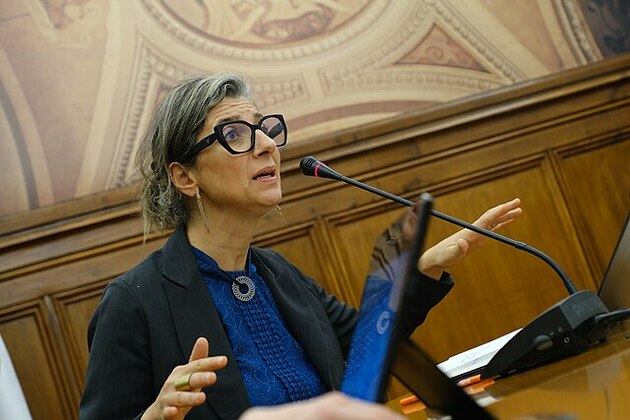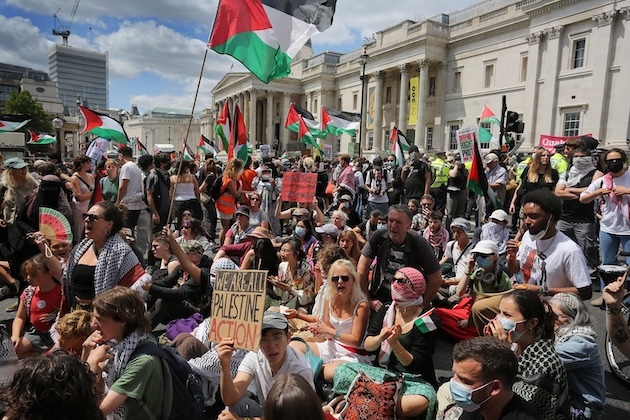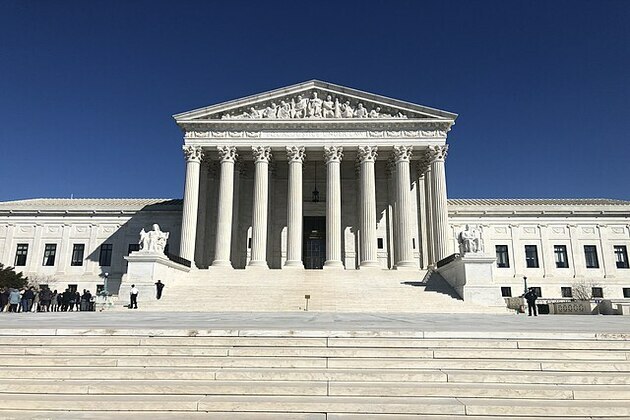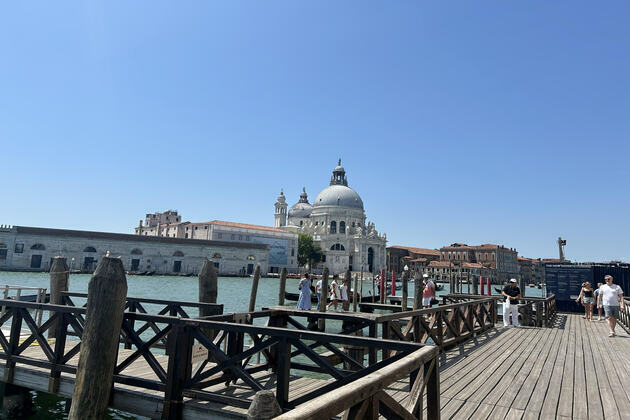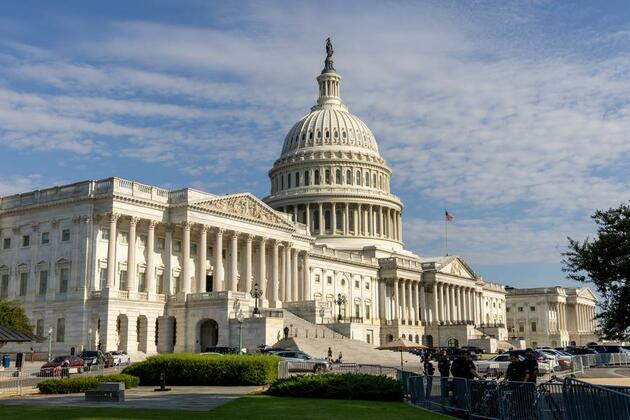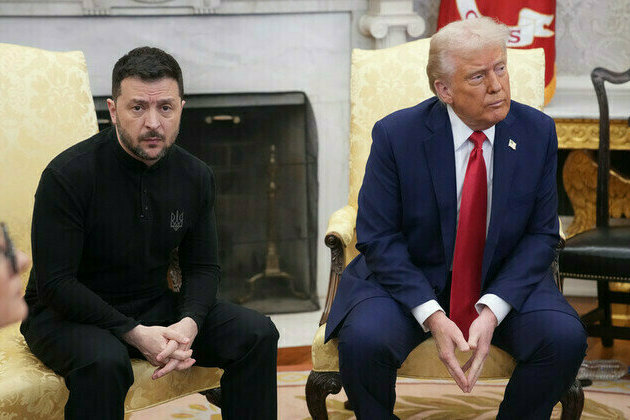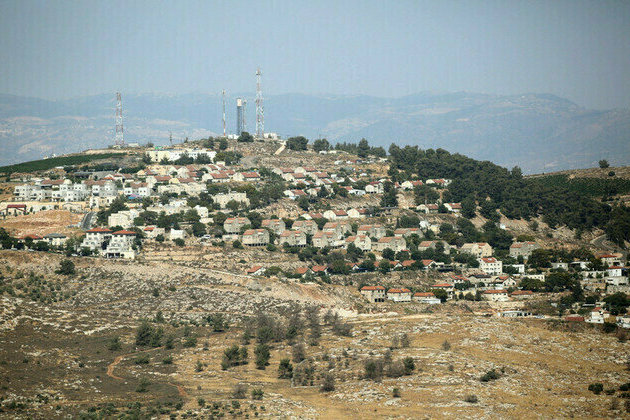Rebuilding a shattered Iraq, with the recycled debris of war
Sustainability Times
03 Jul 2020, 10:08 GMT+10

The world's war zones often look like apocalyptic scenes, with shattered mounds of toxic rubble stretching for kilometers in what were once cosmopolitan Mediterranean destinations, or thriving and culturally important cities.
The cost of the damage is astonishing in terms of lives lost and families destroyed, decimated economies and displaced populations ? but the landscape that's left behind in places like Libya or Syria, Somalia or Yemen, is also an environmental crisis. In Mosul, a city that was home to 1.4 million in Iraq, an estimated eight million tons of conflict debris was left behind when waves of fighting with Islamic State ended in 2017, according to the United Nations Environment Program (UNEP). Most of it was piled up along the banks of the Tigris River.
What were once homes and businesses, universities and museums, roads and bridges and dams, are reduced to piles of carbon-intensive concrete and stone during the fighting. The massive piles are loaded with hazardous materials like asbestos, while landmines and other remnants of the war years remain dangerously concealed within, often for decades as the reconstructed cities of Europe well know.
There are oil spills and chemical releases from industrial sites. There are heavy metals released from building materials. There is medical waste buried under what were once hospitals or clinics, and there are bodies still entombed within the mountains of debris.
Wars end, but no one can go home to rebuild until the rubble is cleared and environmental risk is reduced. That's why UNEP, the International Organization for Migration (IOM) and other partners are working on solutions in Iraq that may work elsewhere too. Engineer Salah Thameel of Anbar University says most of the debris in the city of Ramadi, for example, is suitable for road building and other projects if it were recycled. It's also cheaper than new construction material and reduces the related carbon impacts, and about two-thirds of the debris found in the Kirkuk region alone can be reused.
?Crushing the rubble is a pragmatic and straightforward answer, offering a ray of hope in dealing with our massive challenges, including creating jobs for displaced youth,? says Hassan Nassif, the head of a Multaqa sub-district where 35 villages were destroyed during the conflict.
Thousands of people remain displaced and there is much work to do, but new guidelines for Iraq, released this month by UNEP, establish best practices for removing and recycling the debris. The guidance focuses on reducing hazards caused by the work itself, such as the particulate matter concentrations in dust released by crushing the materials or from transporting it on roads to and from the recycling sites.
The projects in Iraq, beginning with the pilot program in Mosul and now expanding, cannot restore the past but can pave the way ? in some cases literally ? for a sustainable future.
?The volume of physical destruction in areas that saw some of the fiercest fighting is daunting," said Jeanine Hennis-Plasschaert, the UN special representative for Iraq. "This project to recycle the debris of that conflict into building materials for reconstruction will be nothing short of life-changing for those involved. It will enable them to relaunch their communities."
The post Rebuilding a shattered Iraq, with the recycled debris of war appeared first on Sustainability Times.
Source: Sustainability Times
 Share
Share
 Tweet
Tweet
 Share
Share
 Flip
Flip
 Email
Email
Watch latest videos
Subscribe and Follow
Get a daily dose of Iraq Sun news through our daily email, its complimentary and keeps you fully up to date with world and business news as well.
News RELEASES
Publish news of your business, community or sports group, personnel appointments, major event and more by submitting a news release to Iraq Sun.
More InformationInternational
SectionOver 60 companies named in UN report on Israel-Gaza conflict
GENEVA, Switzerland: A new United Nations report alleges that dozens of global corporations are profiting from and helping sustain...
UK lawmakers desigate protest group as terrorist organization
LONDON, UK - Lawmakers in the United Kingdom have voted overwhelmingly to proscribe the direct-action group Palestine Action as a terrorist...
Dalai Lama to address Buddhist conference, reveal succession plan
DHARAMSHALA, India: The Dalai Lama is set to address a significant three-day conference of Buddhist leaders this week, coinciding with...
US Supreme Court backs Texas efforts to shield minors online
WASHINGTON, D.C.: In a significant ruling last week, the U.S. Supreme Court upheld a Texas law requiring age verification for users...
Turkey, France battle wildfires amid early Europe heatwave
ISTANBUL/PARIS/BRUSSELS: As searing temperatures blanket much of Europe, wildfires are erupting and evacuation orders are being issued...
Venetians protest Bezos wedding with march through the town
VENICE, Italy: Over the weekend, hundreds of protesters marched through the narrow streets of Venice to voice their opposition to billionaire...
Arab
SectionOver 60 companies named in UN report on Israel-Gaza conflict
GENEVA, Switzerland: A new United Nations report alleges that dozens of global corporations are profiting from and helping sustain...
UK lawmakers desigate protest group as terrorist organization
LONDON, UK - Lawmakers in the United Kingdom have voted overwhelmingly to proscribe the direct-action group Palestine Action as a terrorist...
Israel should act fast on new peace deals, Netanyahu says
JERUSALEM, Israel: Israeli Prime Minister Benjamin Netanyahu says that Israel's success in the war with Iran could open the door to...
Daily World Briefing, July 4
China, EU hold 13th round of high-level strategic dialogue At the 13th round of China-EU High-level Strategic Dialogue Wednesday,...
US still giving weapons to Kiev Trump
Washington is trying to help Ukraine but prioritizing American interests, the US leader has said President Donald Trump has denied...
Israeli ministers call on Netanyahu to annex West Bank
The Settlement Administration in the area is ready to follow such an order immediately, Finance Minister Bezalel Smotrich has said...

